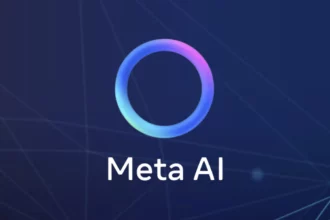Hey there! Let’s chat about something that’s on a lot of people’s minds these days — online privacy. With the rapid growth of artificial intelligence, particularly at companies like Meta, folks are often left wondering just how much of their information is floating out there in the digital ether. One recurring question I keep seeing is, “Are Meta AI searches public?” Well, grab a chair, because we’re diving into it!
Just the other day, I had a chat with a friend who was in a full-on panic over his privacy settings. He was convinced that every time he asked the AI for a recipe or some random trivia, his every word was being stored in some vault. Trust me, it’s absolutely legit to be concerned! As the tech evolves, we’ve gotta keep up with what’s happening with our data. So, let’s break it down.
Table of Contents
Toggle1. Understanding Meta’s Data Usage Policies
First off, let’s rewind a bit and talk about how Meta approaches privacy. They’ve made attempts to put their money where their mouth is by implementing policies aimed at protecting users’ data. If you ask me, it’s a decent start. They have a dedicated privacy center, which is a treasure trove of information, albeit a complex one.
Their policy reveals that they collect various types of data to help improve their AI. Seems reasonable, right? The types of data can range from your posts, photos, captions, and even some information that’s publicly accessible online. But here’s the kicker— things like private messages? Nope, they claim they don’t use those for training their AI systems. Silver lining, right? But clarity is key, and this is where many of us get lost.
- Public vs. Private: Understanding which data is public can get a bit murky. It’s vital to know that anything you post publicly can potentially be used in their AI training. So, that meme you shared? Yep, it’s fair game.
- Data Sources: You might wonder where all this data comes from. Meta says they also use “licensed” information—whatever that means. I think it’s important for users to get definitive answers rather than vague terms. Let’s keep questioning!
One of the most frustrating things for me when navigating privacy policies is the vague language used. It’s almost like trying to read the fine print on a contract! What I’ve learned is that if you’re unclear on something, just ask! Don’t shy away from seeking help or clarification.
2. How Meta AI Interacts with Your Data
Alright, shifting gears a bit here — let’s talk about the nitty-gritty of how Meta AI interacts with the data you feed it. When you engage your brain and ask a question, whether it’s about travel tips or the best pizza place in town, the AI does save information. This includes not just the chat contents, but also things like your preferences and interests. This is where my friend really started to sweat.
For instance, let’s say you’re chatting about your favorite sport. The AI stores that preference to suggest related content later. Great for personalized recommending, but it raises an eyebrow when you think about privacy, doesn’t it?
You may also be wondering about user profiles. Here’s a little story: I once set my profile to “private” thinking I was safe. But I learned the hard way that even private info could potentially leak out through friends. If they’re tagging you in posts, suddenly you’re a part of the public domain again! Just a heads up!
And let’s not forget—if you’ve got a public profile, anything you share can be tied back to you. So, the risks of data exposure are real, especially if you interact a lot with the AI. Keeping your content private is not as straightforward as it seems!
3. Opting Out of Data Collection
If you’re trying to maneuver around this whole data collection issue, I feel you! Luckily, Meta does have options for users to opt out of certain data uses. I once went on an adventure trying to find their opt-out form—it felt like I was on a digital scavenger hunt! What I discovered is that they have a form tucked away in their privacy center. Just note, it’s not super easy to find.
For example:
- Locate the form.
- Select that you want to delete personal data used for AI.
- Cross your fingers and hit submit!
However, keep in mind that submitting this form does not guarantee your data will be deleted. It’s reviewed based on local laws, which is a bit iffy if you ask me. Transparency? Not so much. I spoke with a user who said the process felt “clunky,” with no acknowledgment that her request even went through.
If you’re like some folks I know, your social media presence may be paramount for work or keeping in touch with family. But I suggest periodically checking your privacy settings. Information can fall through the cracks way too easily if you’re not vigilant.
4. User Privacy and AI: Expert Opinions
I wanted to get some expert perspectives on this subject, as it can feel overwhelming! One professor I spoke with mentioned that understanding how your data is being used is crucial. He noted that the implications of public data usage may have serious ramifications for personal security, something we’d all agree on.
Additionally, privacy advocates continuously encourage users to think twice about what’s posted online. Here’s something that struck me! They suggest stepping away from your devices before making a post. Honestly, I struggle with that all the time. In the heat of the moment, it’s easy to type away! But considering the potential aftereffects can save us a lot of trouble down the road.
It’s also worth noting that many social media platforms are eyeing AI development. So even if you’re not using Meta, your data might still be at risk on other websites. Playing it safe by being cautious with what you share is a great strategy!
5. Practical Tips for Users
So, how can you put this newfound knowledge to good use? Here’s a few solid tips I can share from personal experience:
- Think Before You Post: The classic mantra! Before sharing a personal story or sensitive info, imagine it being out there forever.
- Chat Smart: When interacting with AI, try to avoid disclosing too much personal info. It can be tempting, but keep your conversation general!
- Review Your Privacy Settings: Make a habit of going through your settings at least monthly. I’ve found some hidden features I never even knew about!
And a little side note: when it comes to interacting with AI chatbots, think of them as public spaces. You wouldn’t spill all your secrets in a chat room, right? Same concept applies here.
Conclusion
In conclusion, understanding the privacy landscape surrounding Meta AI searches is not just for the tech-savvy—it’s essential for everyone! As the saying goes, “knowledge is power,” and being armed with information about how your data is managed can help you stay in control.
While it’s comforting to know that Meta strives for transparency, ultimately it’s up to us to take proactive steps to safeguard our online presence. So, what are you waiting for? Dive into your settings, think carefully about what you share, and take charge of your digital footprint. Want to explore more about protecting your privacy? Start with your privacy center today!



